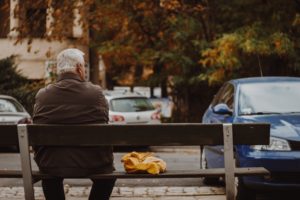Looking at our lives, we sometimes pause to consider what is important to us.
We may look at this or that aspect and we question what is really… essential!
Our personal needs may first come to our minds.
And, of course, our relationships with the people near and dear to us are most important.
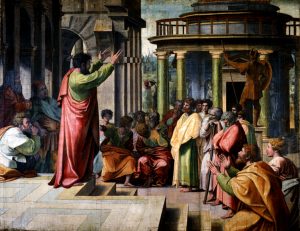
But… something is still missing… which can be found in a verse of today’s 1st reading (Acts 14:21-27).
It speaks of the two apostles, Paul and Barnabas, and says:
“Paul and Barnabas… committed the Elders of the communities to the Lord in whom they had put their trust”.
To be committed to the Lord and put our trust in him – is this not essential to our very being?
Committed to the Lord by the people who love us, the people to whom we really matter –
this is, in fact, the best gift they can give to us.
Committed to the Lord also as something that WE, ourselves, do.
Committed, being engaged in an on-going relationship with him.
Committed, being faithful to what we know he expects from us.
A commitment which supposes that we have put our trust in him.
We have confided to him whatever is important to us,
we rely on him in all situations,
we surrender to him the small and big things of our daily life,
we confide to him our very selves.
I have noted with interest that in one version of the Bible, the word ‘believe’ is translated by ‘to trust’, ‘to rely on’.
This rendering of the text places faith in a perspective that offers all at once security and serenity…
Note: And another reflection, on a different theme, is available in French at: https://image-i-nations.com/5e-dimanche-de-paques-annee-c-2022/
Source: Image: Commonweal Magazine
 A stone rolled away…
A stone rolled away…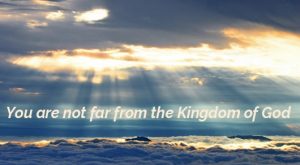 Today’s gospel text (Mark 12:28-34) ends with a sentence that is most hopeful:
Today’s gospel text (Mark 12:28-34) ends with a sentence that is most hopeful: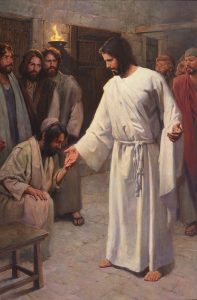 Thomas, the apostle, has been blamed and praised probably in equal measure!
Thomas, the apostle, has been blamed and praised probably in equal measure! In the gospel text of this 1st Sunday (Mk.1:13-15), we hear Jesus tell us:
In the gospel text of this 1st Sunday (Mk.1:13-15), we hear Jesus tell us: These are the very words with which the angel Gabriel greeted Mary.
These are the very words with which the angel Gabriel greeted Mary.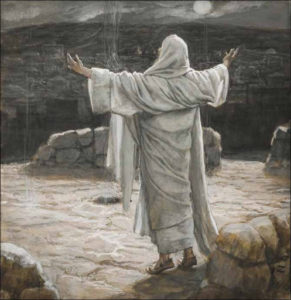 The gospel texts have much for us to learn, to reflect upon, to be inspired and to be challenged by.
The gospel texts have much for us to learn, to reflect upon, to be inspired and to be challenged by. In today’s 2nd reading (1 P 3:15-18), the apostle Peter tells the first Christians:
In today’s 2nd reading (1 P 3:15-18), the apostle Peter tells the first Christians: This is human logic, based on experience some will pretend.
This is human logic, based on experience some will pretend.